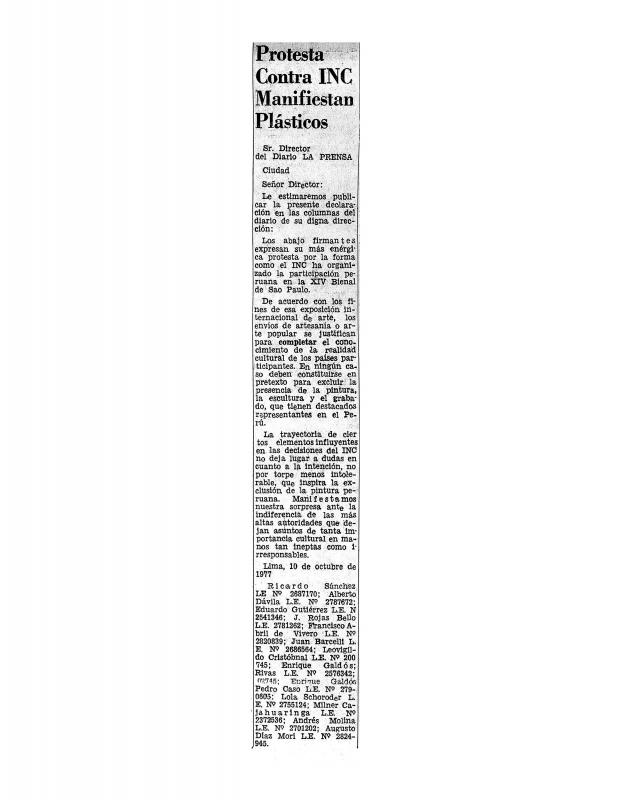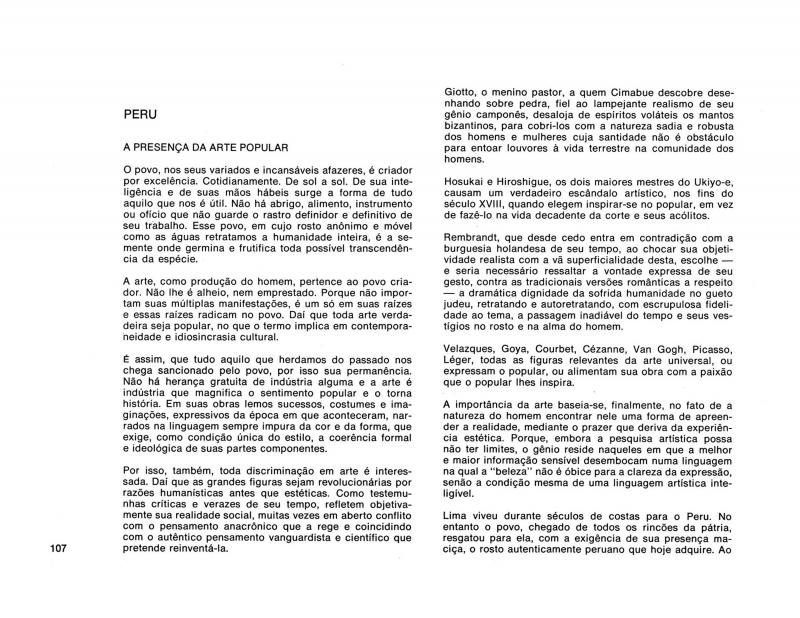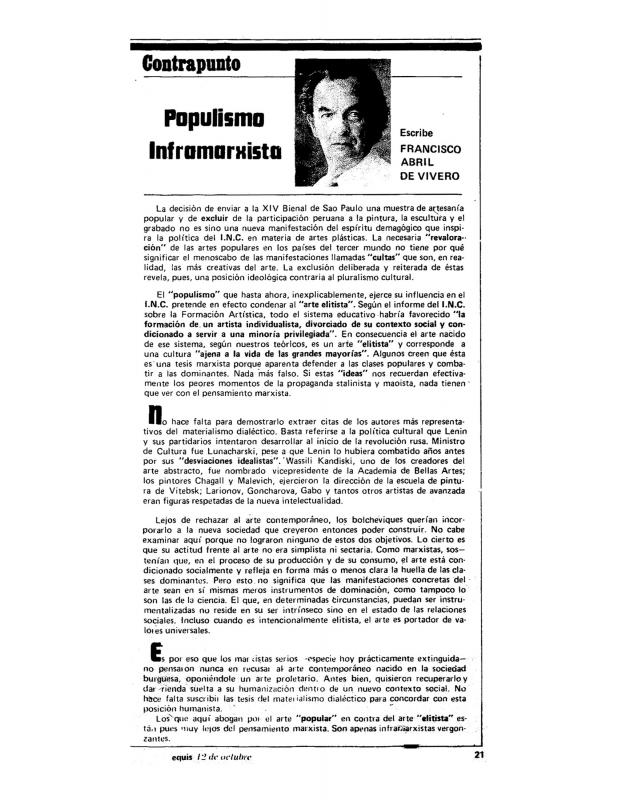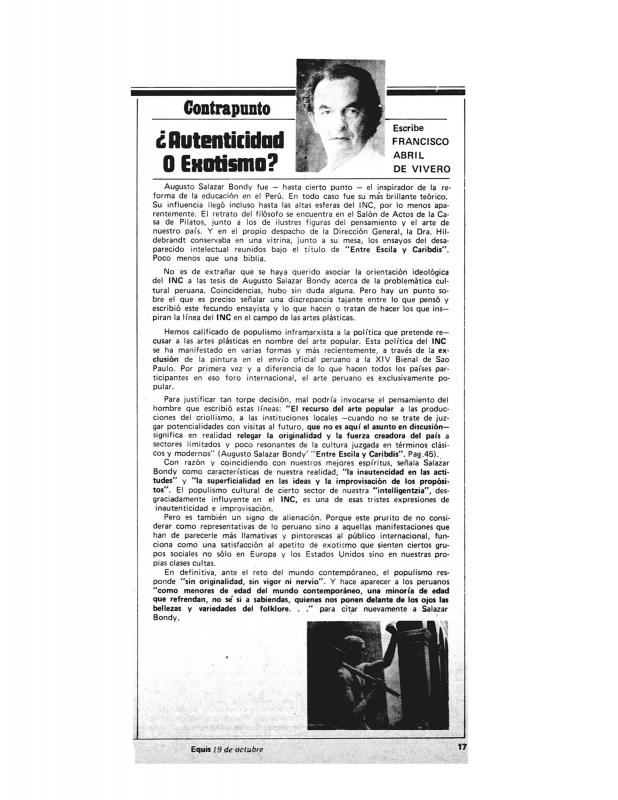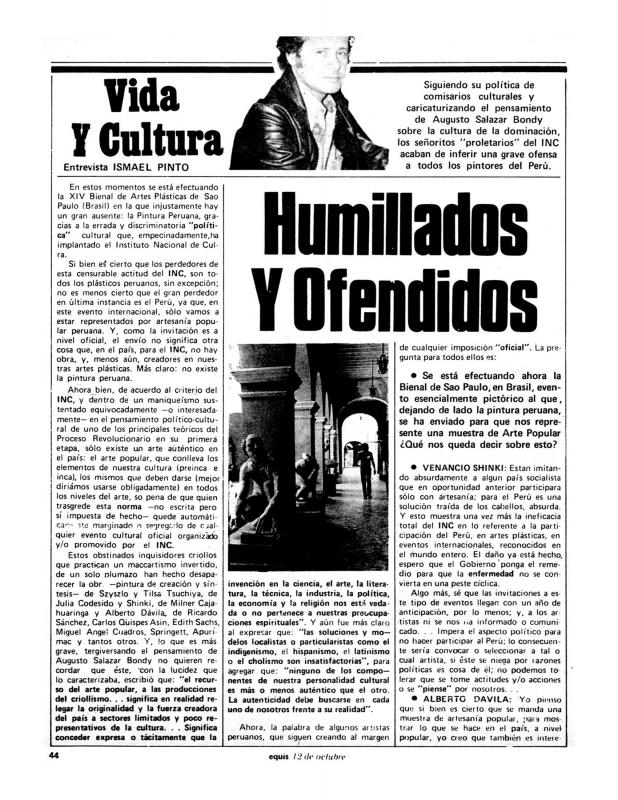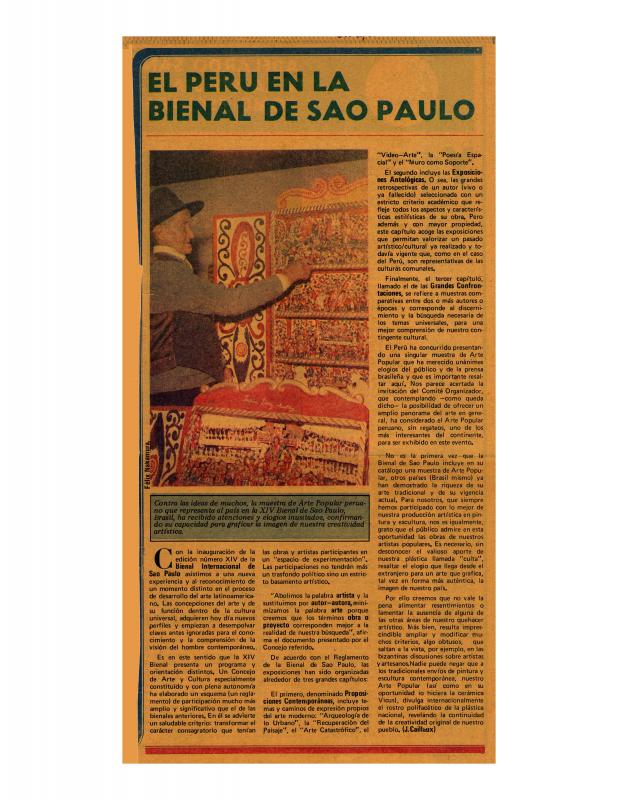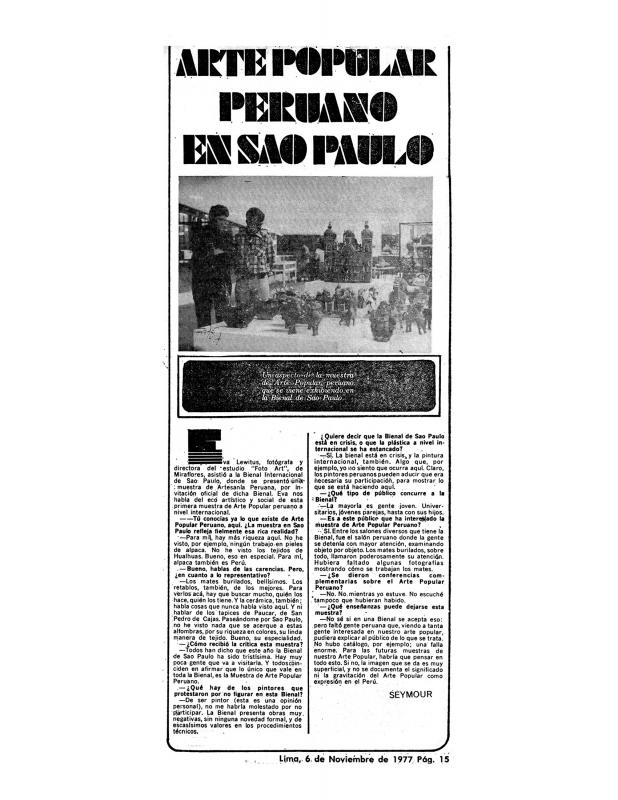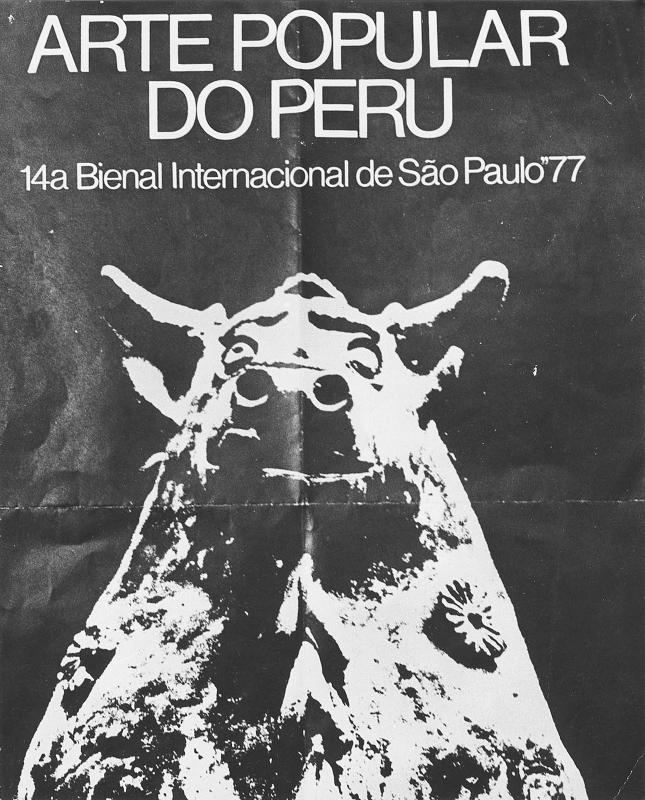In 1977, a collection of folk art was sent to the XIV Bienal de São Paulo as Peru’s sole contribution to the event. The biennial’s organizing committee had invited Peru to participate as part of the “Anthological Exhibitions,” one of the event’s three sections, whose objective, according to the rules, was to show works that would “reflect a participant’s cultural and artistic past” through works by a recognized artist or a collection of works from a particular movement, period, or place.” [XIV Bienal Internacional de São Paulo (São Paulo: Prefeitura do Municipio, Governo do Estado, Governo Federal, 1977), pp. 3 y 8]. In Peru, however, it was thought that the INC (Instituto Nacional de Cultura del Perú) had specified the nature of the shipment. This misunderstanding revived the controversy that had arisen in late 1975 when the same Peruvian institution granted the art prize or Premio Nacional de Cultura to the folk artist Joaquín López Antay (1897−1981), a retablista who created traditional altarpieces. What happened in the case of the São Paulo biennial once again prompted a group of “highbrow” visual artists (or those with greatest access to the market) to air their complaints, on the grounds that the so-called “arts and crafts” were not real works of art and that the INC was blocking the development of true art.
[Regarding this Brazilian event, please see the following texts in the ICAA digital archive:
“Protesta contra INC manifiestan plásticos” (no author) (doc. no. 855211); “Perú: a presença da arte popular” by Leslie Lee (doc. no. 857190); “Populismo inframarxista” (doc. no. 855232) and “¿Autenticidad o exotismo?” (doc. no. 855918), both by Francisco Abril de Vivero; “Humillados y ofendidos” by Ismael Pinto (doc. no. 855252); “El Perú en la Bienal de Sao Paulo” by Jorge Caillaux (doc. no. 855937); “Arte popular peruano en Sao Paulo” by Alfonso de la Torre [Seymour] (doc. no. 855899); and “Arte popular do Peru: 14a. Bienal Internacional de Sao Paulo ’77” (no author) (doc. no. 857172)].

